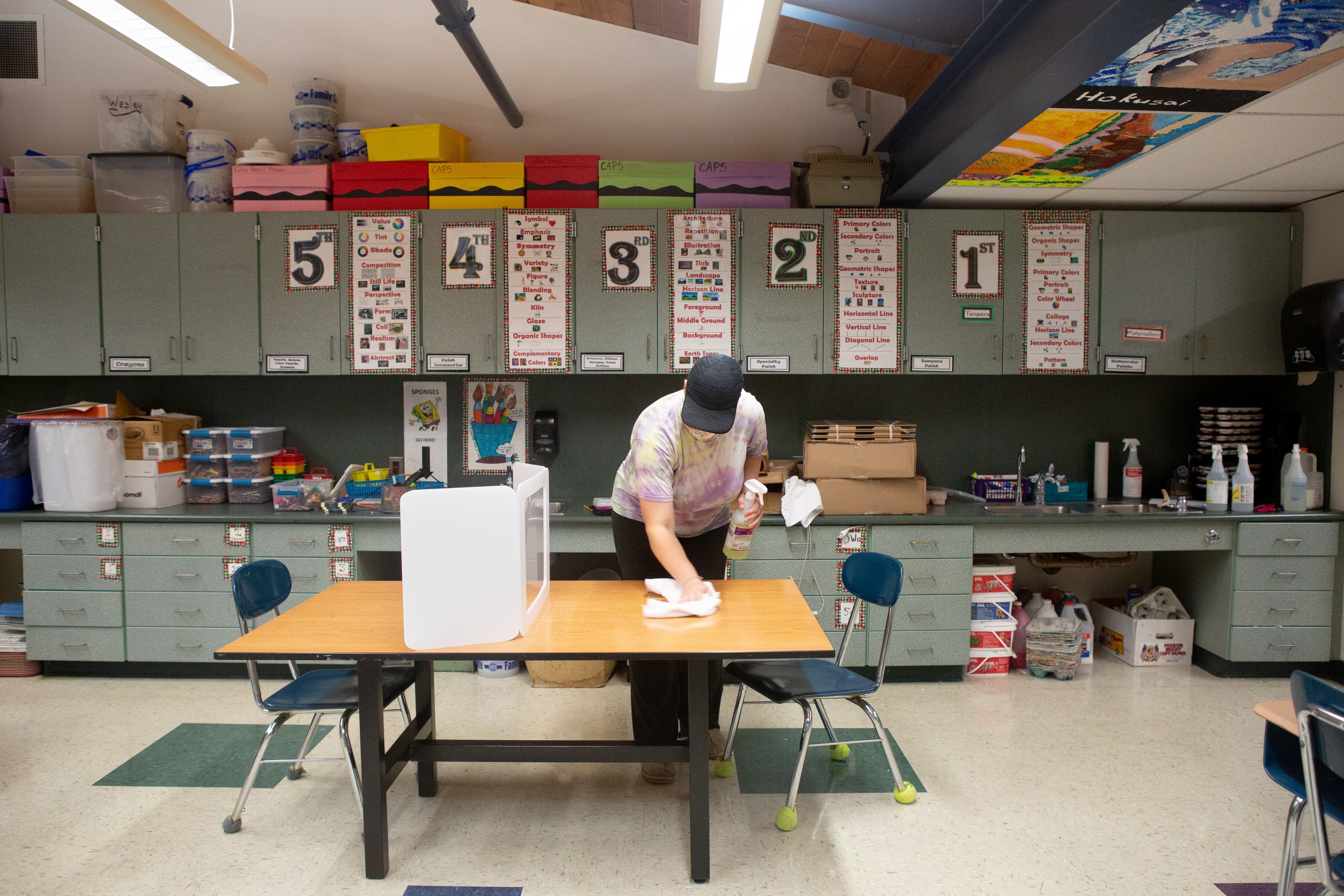As advocates nationwide are pushing for a $15 minimum wage, Shelby County and Memphis City governments have already raised the minimum to $15 an hour for all employees. But Shelby County Schools is continuing to pay some part-time employees as low as $10.19 per hour, deterring people from working with the district and contributing to employee turnover.
All full-time SCS employees make at least $15 an hour due to a 2018 initiative from former Supt. Dorsey Hopson, but that adjustment did not include part-time employees.
In May of 2019, current Supt. Joris Ray reaffirmed the district’s “commitment to pay part-time workers a living wage.” Two years later, the district still hasn’t lived up to that commitment, said Shelby County Commissioner Edmund Ford, Jr. He said approximately 3,100 part-time employees still don’t earn a living wage, a number that has remained relatively unchanged since the County Commission passed a resolution asking the district to study the issue.
When Chalkbeat asked how many part-time employees earn less than $15 an hour, Memphis district officials did not provide updated figures.
Ford said that some non-certified staff, such as full-time nutrition service staff, make more than some employees who have degrees and certifications, including substitute teachers.
“On average, [these employees] are making 30 cents an hour less than cafeteria workers,” he said. “So the person with degrees and certifications could easily decide, well, I might as well be a nutritional services support employee, because I’m going to make 30 cents an hour more and not be in the classroom.”
In April, during the district’s preliminary budget presentation to the Shelby County Commission, Ford asked SCS chief financial officer Toni Williams if there has been any movement toward raising part-time hourly pay to a living wage. Williams assured him that the finance and human resources teams at SCS were working on it.
In its fiscal year 2022 proposed budget, the district allocated funds to bump up 587 part-time employees to a living wage, but stopped short of extending the $15 wage minimum to all employees. District officials will go back before the commission today for a budget hearing.
In 2018, when Ford was on the City Council, he brought forward a resolution that would establish a $15.50 minimum wage for all city employees. It passed. That same year, Mayor Lee Harris announced that all county employees, even temp workers, would receive a $15 minimum wage. Ford said he has been in talks with Williams for nearly a year and a half about instituting $15 minimum wage for all SCS employees, but the district would need to increase its salary budget to $25 million from the $16 million that was proposed during the budget presentation.
“Shelby County government found the money within their budget in order to make that happen,” Ford said during a recent interview. “City government, with the help of the City Council, we were able to find the money in our budget to make it happen. I’m not asking Shelby County Schools to do anything different than Shelby County government and Memphis City government have already done.”
County Commissioner Tami Sawyer, who is also chair of the education committee, added that implementing a $15 minimum wage for all employees would have a broad impact on the community at large.
“There’s so much that an increase taking us out of poverty wages will do, such as allowing people to secure transportation, invest in their children’s education, and take care of medical bills,” Sawyer said. “SCS is the largest employer in Shelby County, the positive ripple effect will be huge.”
Non-certified SCS personnel such as nutrition service employees start at $11.57 per hour, and certified staff such as substitute teachers start between $12 and $13 per hour.
Nearby, Metro Nashville Public Schools pays all of its employees at least $15 per hour.
Former substitute teacher Holly, whose last name has been omitted for the sake of confidentiality, worked for the district for two years while she was in grad school. According to Holly, when she started substituting in 2015, she made $95 to $98 per day, depending on the assignment, or about $12 to $13 per hour for a seven-and-a-half hour day. She said the wage she made was just enough to make ends meet until she graduated and began a career doing hospital research.
“Shelby County Schools is a school system that has a huge need for substitutes,” Holly said. “The district should realize that if they want good people to come in, and because they are stewards of children, even if it’s just for a day, compensate accordingly.”
Jolie Madihalli, president of the Memphis-Shelby County Education Association, said the substitute teacher positions are meant for people like Holly, who are just starting their careers, and retirees wanting to supplement their income.
Regardless of the status of the employee, however, she said that all employees of SCS, including non-certified and part-time support staff, should earn at least $15 minimum wage.
“It’s important for all workers in Shelby County Schools to receive a minimum wage of $15 an hour,” Madihalli said. “Because ultimately, it will have an impact on our community and the socioeconomic status of our students, which we already know affects our students and how they learn.”





